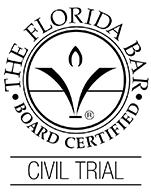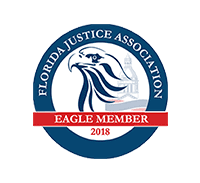Most, but not all, employees in Florida are able to receive workers’ compensation if they are hurt at work. If an employer doesn’t offer workers’ compensation, you may still have options for seeking compensation for your injuries on the job. You may be able to pursue a personal injury lawsuit for your injuries and losses.
You don’t have to take on the legal process alone. A personal injury lawyer from our firm will manage all the tasks in your case. From evidence collection to submitting your lawsuit, we are prepared to fight for the compensation you need.
What if You’re Hurt While Working?
Seek medical attention and alert your employer as quickly as possible if you’re hurt while working on the job. Keep copies of all your injury-related medical bills, as well as your most current pay stubs. It can also help to keep notes on the impact of your injuries. For example, you may have difficulty working or going about your daily life. You may be in a lot of emotional distress while dealing with painful or debilitating injuries.
Filing a Personal Injury Lawsuit After Suffering a Work Injury
If you’re hurt while working for an employer that does not offer workers’ compensation, you can file a lawsuit to seek damages. This could be against your employer, or possibly a third party, depending on the circumstances of your accident. Maintenance companies and parts manufacturers, for example, could be held liable.
You could pursue damages for medical bills, doctor’s visits, pain and suffering, and lost income. If a loved one passed away from an accident at work, you could file a lawsuit for wrongful death damages. If you are filing a lawsuit, keep in mind that you must obey the Florida statute of limitations for these cases. You may only have up to two years to pursue a lawsuit, so it’s in your interests to act quickly.
Who Must Comply With Florida’s Workers’ Compensation Law?
First, if there are more than four employees at your workplace, your employer is required to carry worker’s compensation insurance in Florida, per the Florida Department of Financial Services. This applies regardless of whether you and your co-workers are working full-time or part-time status.
If your employer fails to maintain their policy or make the required payments, they can face severe penalties from the state. If you believe your employer is not complying with Florida’s workers’ compensation requirements, you can file a non-compliance referral online.
Certain businesses working in industries with a higher rate of employee injury may have different workers’ compensation requirements. For example, construction businesses with one or more employees must carry workers’ compensation insurance. Contractors (e.g., plumbing, electrical) are also required to carry workers’ compensation policies to cover any subcontractors or self-employed workers they hire.
How Do I Know if My Employer Has Coverage?
If there are four employees or fewer at your company, there is a possibility that your employer doesn’t carry worker’s compensation insurance. Florida employees can speak with their employer or reach out to the Employee Assistance and Ombudsman Office by phone or email to check if an employer carries this coverage. There is also an online database that shows an employer’s proof of coverage.
Who Is Exempt From Florida’s Workers’ Compensation Law?
According to the Florida Department of Financial Services, individuals working for a corporation or a limited liability company can exempt themselves from Florida’s workers’ compensation insurance laws by filing an official declaration of exemption with the Florida Division of Workers’ Compensation.
Additionally, companies or businesses with four employees or fewer are not required to carry workers’ compensation insurance. However, it should be noted that companies with fewer than four employees can still purchase a workers’ compensation policy.
When Does Workers’ Compensation Start?
Workers’ compensation carriers are responsible for any medical bills related to your injury. In cases where your injuries leave you disabled or unable to work, Florida’s workers’ compensation requirement will also compensate you for lost wages. However, the first seven days of missed work are not paid under Florida’s workers’ compensation plan.
In cases where your work-related injuries cause you to miss 21 or more days of work, the workers’ compensation carrier may reimburse you for the first seven days of missed work.
If Your Employer Refuses To Pay for Your Injuries, Call Dismuke Law
If your employer refuses to pay your bills or denies that your injuries are work-related, it may be time to reach out to the team at Dismuke Law. We can explain how Florida’s workers’ compensation laws apply to your case and help you file a lawsuit if your employer does not offer workers’ compensation.
Dismuke Law is firmly committed to helping people hurt through no fault of their own seek the compensation they deserve. If you’ve been injured while on the job and your employer doesn’t carry workers’ compensation, we want to help. Contact our firm for a free case review today.


![cftla-member[2]](https://www.1800askdave.com/wp-content/uploads/2022/03/cftla-member2.png)
![cftla-member[3]](https://www.1800askdave.com/wp-content/uploads/2022/03/cftla-member3.png)










